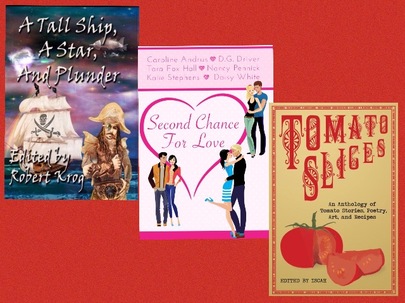 I have excerpts from my stories and buy links for these books on my website. Click and take a look. I have excerpts from my stories and buy links for these books on my website. Click and take a look. Short stories occupy most of my thoughts these days. Earlier this year my short story “The Ticket to Her Heart” was published in the romance anthology Second Chance for Love. In two weeks my fairy tale “The Tomato Quest” will be published in an anthology of stories, articles, and recipes called Tomato Slices. I have joined a fun group of indie fantasy authors called Fellowship of Fantasy, and they are putting together an anthology of fantasy stories around the theme of mythical creatures. I’ve spent the past two weeks writing a short story for possible inclusion in that book. It has to go through a judging process, so it’s not a guarantee. I have my fingers crossed, though. On top of all of that, if you read my last post, I’ve been still trying to figure out how to get people to read my stand-alone novella Passing Notes and wondering if I should write more stories to go with it and make it an anthology. In June I was asked to speak on a panel about short fiction at Hypericon, a convention for speculative fiction. It was a lot of fun to share the microphone with other fantasy/scifi writers who are published in short fiction and talk about the nature of short fiction and why we like to write it. I believe that short stories, whether 2,000 words or 15,000 are more direct than novels. They usually center around one character and one moment in time (or a very short time period) with no subplots. They are sometimes abstract, but they do follow an arc from beginning to end. If there is no end, it is a scene not a story. 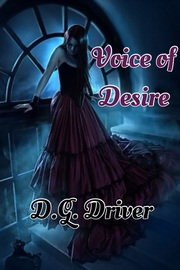 Click on this picture and scroll on down to find links to all my Wattpad fairy tales. Click on this picture and scroll on down to find links to all my Wattpad fairy tales. I’ll be honest, I consider myself a novelist, and short stories are difficult for me to write. I’m just too wordy and tend to overwrite. In my college writing class I always wrote a minimum of 15 page stories when we were asked to keep them around eight. One of my stories was 32 pages, and I didn’t even turn it in. I just started over with something new. (That long story, btw, was the first of my romantic fairy tales “Voice of Desire” which I have up at Wattpad.) When I first began writing, I wrote short stories for fun. An idea would come to me and I’d jot it down. I wrote a lot of songs and poems back then too. My writing career began with getting short stories published in magazines like Children’s Digest, Ladybug, Story Friends, Funny Times, and I had two in Chicken Soup for the Soul books among other places. I eventually started selling books and now I don’t work on short stories unless I come across a specific call for them from a publisher or contest. I really do like the challenge of writing to a theme and deadline. Sometimes the stories work and sell, and sometimes they get put in my “I’ll come back to that someday” file on my computer. 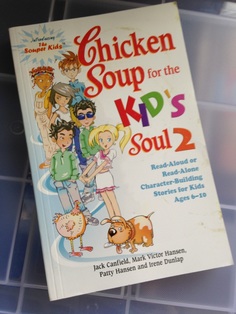 I recently read a blog post by another author about how she makes more money with her short stories than with her novels. She didn’t say why, unfortunately, and I would have loved that information. I have not seen much income from short stories. My biggest paychecks were from the Chicken Soup books, but in a lot of cases I was rewarded with free copies or $20. I have a few stories in books that pay royalties, but I have my doubts that I’ll ever see a dime from that as the money has to be split between all the authors (one of the books has 25 authors). And, frankly, I don’t see the short story collections winging their way off to Kindles on a regular basis. So, why write short stories? What’s the point? What do authors get out of it? Why do publishers bother with them? What are we all trying to achieve here? To answer this, I interviewed several published authors of short stories and the editors of three of the collections featuring my stories. I got so much wonderful stuff from them it won’t all fit in one blog post. So, I’m breaking it up into two parts. Today, I will include some thoughts from the author perspective and next week I’ll feature the editing side of things. 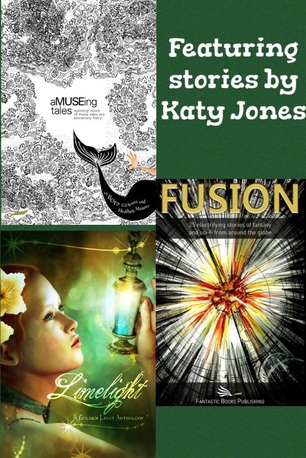 Click here to get to the Amazon page for Katy Jones and find all these gorgeous books. Click here to get to the Amazon page for Katy Jones and find all these gorgeous books. Katy Jones has had 13 short stories published over the years. She writes primarily children’s and fantasy. Her story “Tam and the Giantess” won first place in an international competition and was printed in a collection called Fusion, and she has stories in the anthologies aMUSEing and Limelight. She says she used to write more short stories, but now prefers novels. “The stories I want to tell take too many words!” When she does write she crafts them “only if I have a clear I idea of the characters and the single story I want to tell.” She believes that “there is an art to writing short stories, which is quite different than writing a novella or a novel. When I first began 30 years ago, I tried to cram too much into each story.” Why does she like writing short stories? “The satisfaction of completing a project and seeing it in print, it's validation as a writer. And the extra money doesn't hurt, especially if the story is picked up by another market and you get check(s) for reprints.” Which prompted to me to ask if she found selling short stories to be profitable for her. “Not as much as it used to be when more people read magazines,” Jones confessed. “The story I've made the most for was one about a Navajo girl in Highlights for Children because it had so many reprints. ($250 when I first sold it and about $2,000 in reprint royalties).” 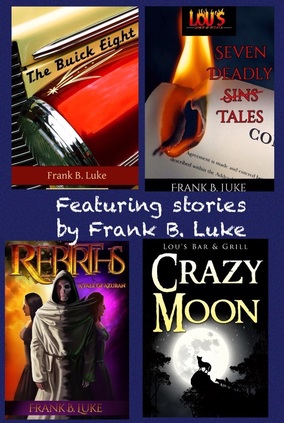 Click on this picture to find Frank B. Luke's story collections on Amazon. Two of them are FREE. Click on this picture to find Frank B. Luke's story collections on Amazon. Two of them are FREE. Frank Luke writes supernatural fiction and has had 12 stories published. “The Other Cemetery” appears in Supernatural Colorado. His three Shylocke Avery stories were in the Cross and Cosmos Year 1 Anthology. “The Strong Survive” appeared in the Cross and the Cosmos e-zine. Then he self-published “The Buick Eight” to Amazon. It's the first part of the Joshua's Pawn Shop series. The companion set of short stories, Seven Deadly Tales, is out and hit #35 on Amazon's Christian Fantasy list one day. He prefers writing short stories to novels “because of the challenge of staying tightly focused and on target. There is no room to wander if you have a point.” Luke likes to follow calls from publishers, but he writes a lot from inspiration too. “The most recent two have been for calls to anthologies. When I read the first listing, I thought, ‘Yeah, I'd love to write another medieval fantasy’ and planned to sit out the other to focus on the two Joshua's stories that need to be finished. Then that muse began to whisper in my ear, and I said, ‘Oh, that's too good to pass up!’ Now, I'm 6,000 words into a story that combines Lou's Bar & Grill with Joshua's Pawn Shop and throws a genre I've never written in on top of the mix. It'll be either a huge flop or a huge win.” As for making a profit as a short story writer? “In my experience, with so many deals available, people shy away from paying $0.99 for a short story. Making the story free gives it some downloads, but the benefit there is more exposure. People read it and go look for your longer works. It's the same benefit of being in an anthology. Collecting related stories together into one book is the only way I've made money from them.” His tip for marketing short stories: “Group promos have worked best for me. Getting listed with other authors who are sending out blasts to their readers has helped my books more than anything. That's how "Seven Deadly Tales," made it first to #55 then to #35 in Christian Fantasy.” 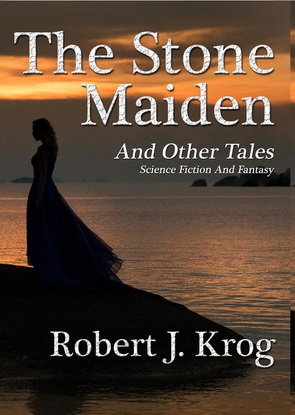 Click on this picture to find this lovely collection on Amazon and several of Robert Krog's other books. Click on this picture to find this lovely collection on Amazon and several of Robert Krog's other books. Robert Krog is both an author and editor. I’ll share more from him as an editor next week, but today he’ll wear his author hat. “My first work, The Stone Maiden and Other Tales, was first published in 2010. I started getting short fiction into anthologies the year after that and found myself reading them more and more. I think I have stories out in thirteen different anthologies at present, with four or five more coming out in the next few months or so, and it has been a great experience.” Krog is also going to be published in Tomato Slices with me and is both editor and contributor to A Tall Ship, a Star, and Plunder, which he claims is his favorite of the collections featuring his work. ( Find more of his stories on his website : http://krogfiction.yolasite.com/) Why does he write short stories? “Short stories are supposed to explore a single idea. Novels are supposed to go further, deeper, and broader. I like to read and write both, though I do not yet have a published novel. Novels are a lot more work for man with a full time job, a wife, and three young children. I’m nearly there though. The level of satisfaction that goes with finishing a novel will be, I expect, much greater than that of finishing a short story for the first time. Mind you, I have no intention of giving up on short stories. Is there a benefit to writing and publishing short stories? “I advise writers to submit short stories for various reasons. It’s easier to get a short story out than it is to get a novel out. A reader who likes a short story is likely to look for more work by the same author, such as a novel. Having short fiction out may be a way to reach an audience otherwise inaccessible. Writing short fiction is an exercise in discipline. Keeping one’s story to a certain word count may mean that the story will have little fluff in it. It can be an exercise in discipline.” Overall what I am getting from these authors and my own experience is that writing short stories is great exercise for improving your craft as a writer. On the career end, however, it is a way to earn some publishing credits and name recognition. There are plenty of paying markets still, although the magazine market has shrunk a lot in recent years. And hey, if you’re writing short stories just for fun, make sure you keep them. You never know when they’ll fit the theme of a publisher’s call. The books mentioned by Katy Jones, Frank Luke, and Robert Krog are available at Amazon. Click on the pictures to find them. Next week, I’ll have Robert Krog back to share about being an editor of short story collections, along with Nancy Schumaker from Melange Books, and Kay Iscah of Amoeba Ink. Please feel free to leave a comment below about your experience with short stories. I'd love to know about it. Oh, and one last thing! Second Chance for Love is currently part of a Goodreads giveaway (through August 5th). Make sure you sign up! 7/31/2016 09:04:05 pm
Thanks for including me in this well-written, informative article! 7/31/2016 10:40:59 pm
Thanks for the interview! I'll also add that since I sent the answers to you, The Buick Eight has spent 4 days straight as the #1 Kindle, Short Reads, Teen and YA (free)! It spent almost 3 days #1 in Kindle, Short Reads, Sci-Fi and Fantasy (free)! Comments are closed.
|
D. G. DriverAward-winning author of books for teen and tween readers. Learn more about her and her writing at www.dgdriver.com Archives
July 2024
Categories
All
|
Author D. G. Driver's
Write and Rewrite Blog
“There are no bad stories, just ones that haven’t found their right words yet.”
A blog mostly about the process of revision with occasional guest posts, book reviews, and posts related to my books.
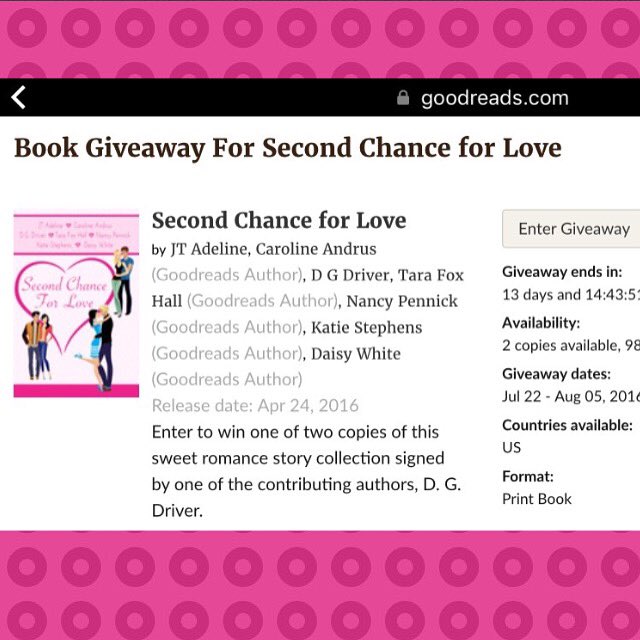
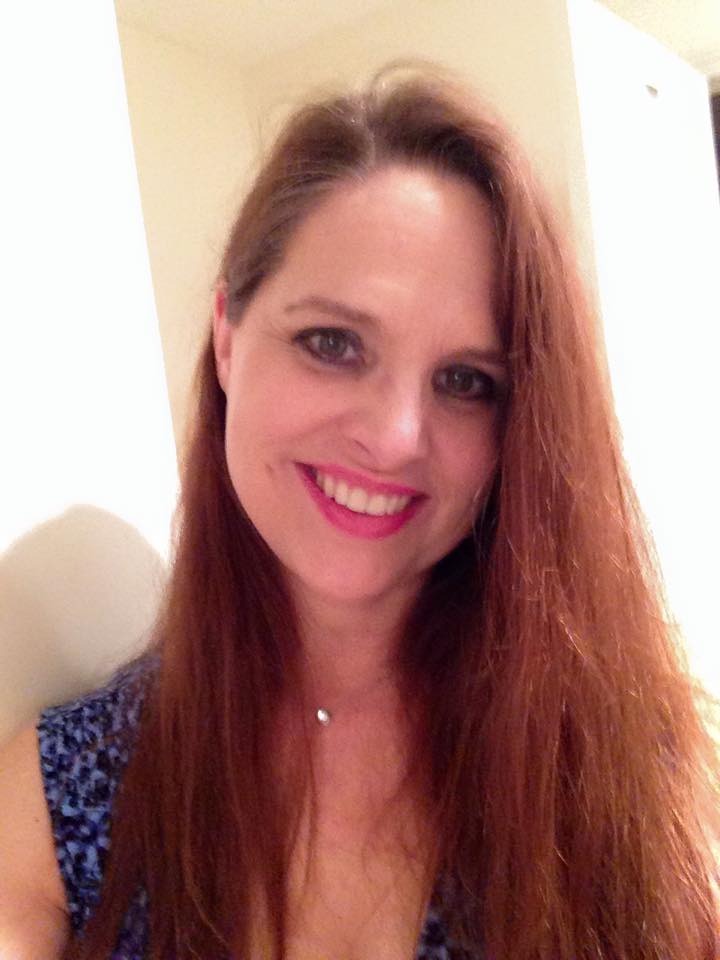
 RSS Feed
RSS Feed